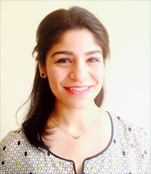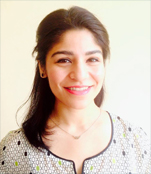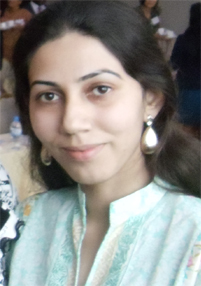Pakistan, home to 210 million people, is a paradox of conflicting realities. It has crossed global milestones, with Malala Yousufzai, the youngest girl at age 17, becoming a Nobel Peace Prize winner for championing girls’ education. Yet, Pakistan also has the second largest number of girls out-of-school in the world after Nigeria. In South Asia, it is only second to Afghanistan for the lowest gender and education metrics. There is clearly a dilemma that needs urgent attention, to break new grounds amidst profound gaps in educational achievements that are a trigger for other entitlements for human well-being. Low indicators for girls’ education are reflected in the overall low metrics for women’s life expectancy (68.2 years), health (MMR: 178/1000) and women’s labour force participation (24%) in Pakistan (Gender MIS Punjab Commission on the Status of Women 2018).
According to the new constitutional article 25-A, all children aged 5-16 are entitled to free and compulsory education or 12 years of schooling without discrimination. From a girls’ perspective, this promise of 12 years of schooling would, in principle, ensure solid shields of protection from child labour, early marriages and other forms of exploitation that undermine the rights of children generally, and girls especially. Since 2010, all four provinces and the federal capital territory have passed their respective legislations for 25-A (2012-17) but none have formally begun the implementation, in spite of the policies and provincial education sector plans being increasingly framed by 25-A as a fundamental right. The Adjusted Net Enrolment Rate (ANER) in primary education reveals that the ANER is 4% lower for girls than it is for boys (81% compared to 85%); at middle to higher secondary levels, this ANER drops significantly to just 41% for girls (43% for boys). This means that 19% of girls are out-of-school at the primary level and 59% of girls are out-of-school at middle and higher secondary levels (more than half!).
Having a dedicated portfolio of girls’ education programs, A consultative session on “Girls Education #LeaveNoGirlBehind” was held at the Pakistan Learning Festival 2021. This virtual session included key players in the EdPolicy space and was an interactive discussion on the growing need and focus on girl’s education. The high-profile panel included the Founder of Women’s Voices for Change Shad Begum, Human Right Activist, Samar Minallah Khan, Executive Director PAGE Fajer Rabia Pasha, Senior Education Advisor Foreign Commonwealth Development Office Saima Anwer, Executive Director, Pakistan Youth Change Advocates Areebah Shahid, Senior Program Manager Idara-e-Taleem-o-Aagahi (ITA) Saba Saeed and Founder Science Fuse Lalah Rukh. The session was moderated by Maham Ali and led to and engaging talk with messages and recommendations from the panelists.
Speaking at the session Senior Program Manager Idara-e-Taleem-o-Aagahi (ITA) Saba Saeed stated that “the approach to investing in a multi-faceted life skills program needs to be undertaken. Not only do we need to provide a safe environment that is conducive to learning but also prepares them for the transition into adulthood”. Adding on to that Shad Begum, said that “it is not the job of an NGO or an individual to meet the challenge of girls’ education. It requires collaborative effort for sustainable impact”.
Fajer Rabia Pasha highlighted that “75% of girls drop-out before completing primary education. That is where the major problem lies. Technology can be used to cater to this particular challenge by integration of distance based learning modalities”. Samar Minallah stated that “to come up with a sustainable working model, we should not underestimate the role and influence of the men in various vulnerable communities. They need to be on board to get the girls back to school”
Lalah Rukh Ansar talked about the growing need for integration of females in the STEAM space during the panel and stated “If we can build the passion of science and technology in girls, they are less likely to drop out”. Saima Anwar talked about the learnings from working with vulnerable groups and stated that “teaching at the right level is a holistic approach to improving foundational skills among children. Teaching should be based on students learning/grades rather than their age”. Talking about the lack of support from various stakeholders in the space, Areebah Shahid stated that “budget cuts are not a result of emergency situations but rather a bi-product of it”
The session serves as a platform to bring decision makers on board for discussing and devising recommendations for NEP 2021 more imaginatively while engaging semi-autonomous and state government bodies to address gendered deprivations.
Panelists
Fajer Rabia Pasha Girls Education Advocate
Shad Begum Community Engagement – Agency
Samar Minallah Videographer -Ethnographer- Filmmaker
Saba Saeed Girls Education Advocate and Researcher
Areebah Shahid Education Financing & Youth advocate
Lalah Rukh Girls/Women in STEM
Saima Anwer Education Advocate
Moderator
Maham Ali Social Activist
Key Messages:
Saba Saeed “The approach to investing in a multi-faceted life skills program needs to be undertaken. Not only do we need to provide a safe environment that is conducive to learning but also prepares them for the transition into adulthood”.
Shad Begum “It is not the job of an NGO or an individual to meet the challenge of girls’ education. It requires collaborative effort for sustainable impact”.
Fajer Rabia Pasha “There are 75% of girls drop-out before completing primary education. That is where the major problem lies. Technology can be used to cater to this particular challenge by integration of distance based learning modalities”
Samar Minallah “To come up with a sustainable working model, we should not underestimate the role and influence of the men in various vulnerable communities. They need to be on board to get the girls back to school”
Lalah Rukh “If we can build the passion of science and technology in girls, they are less likely to drop out”
Saima Anwar “Teaching at the right level is a holistic approach to improving foundational skills among children. Teaching should be based on students learning/grades rather than their age”.
Areebah Shahid “Budget cuts are not a result of emergency situations but rather a bi-product of it”





